Candidate receives the mark, says he has no money about him; he cannot grant the request.
S. G. W.–Right Worshipful, I can accommodate Brother Jay with twenty-five dollars, if he will leave his mark with me as a pledge.
R. W. M. (to candidate.)–Will you return the mark, then? Candidate hands it back.
R. W. M.–How is this? Do you return it without the price, and thus break your oath before you rise from the altar? Have you not sworn, that where you could not grant a brother’s request you would return his mark, with the price thereof, viz.: half a Jewish shekel of silver, or the fourth of a dollar?
p. 168
Candidate is generally embarrassed, and replies that all his money was taken from him in the preparation-room.
R. W. M.–Are you sure that you have not even a quarter-dollar about you?
Candidate–I am.
R. W. M.–Look further. Perhaps some good friend has, in pity to your destitute situation, supplied you with that amount, unknown to yourself: feel in all your pockets, and if you find, after a thorough search, that you have really none, we shall have less reason to think that you meant wilfully to violate your obligation.
The candidate feels in his pocket and finds a quarter of a dollar, which some brother had slyly placed there. He protests he had no intention of concealing it–really supposed he had none about him, and hands it to the Master, with the mark.
R. W. M.–Brother, let this scene be a striking lesson to you: should you ever hereafter have a mark presented you by a worthy brother, asking a favor, before you deny him make diligent search, and be quite sure of your inability to serve him; perhaps you will then find, as in the present instance, that some unknown person has befriended you, and you are really in a better situation than you thought yourself.1
The above is a true description of the manner in which the candidate was formerly taught his duty as a Mark Master Mason. In these latter days, however, very few Masters countenance this method of instruction, and it is therefore almost entirely discarded. The plan now generally adopted is as follows:–
After the candidate has taken the obligation, and while he is yet kneeling at the altar, the Right Worshipful Master presents him with a small metal mark (usually gold or silver), and requests the loan of a small sum of money upon it. The candidate takes the mark, but upon examination he finds that he has no money, all having been taken from him in the ante-room. He then attempts to give it back to the Right Worshipful Master, but the latter refuses to receive it, saying to the candidate:
I cannot, brother Gabe (or as the case may be), take it back:
p. 169
were I to do so, I would violate my oath as a Mark Master, and so would you.
Here the Right Worshipful Master calls the candidate’s attention to that part of the obligation.
The Right Worshipful Master now requests one of the brethren present to let the newly made brother Mark Master have the price of the Mark (usually twenty-five cents). Some brother here hands the candidate that sum, and he in turn hands it, together with the Mark, to the Right Worshipful Master. The Right Worshipful Master then administers the caution to candidate, beginning as follows:–
Brother, let this scene, &c. (See line 16, page 168.)
The Right Worshipful Master now takes the candidate by the hand, and says:
Arise, brother, and I will invest you with the pass-grip and word, and also the real grip and word of a Mark Master Mason.
The pass-grip of this Degree is made by extending the right arms and clasping the fingers of the right hands, as one would naturally do to assist another up a steep ascent. It is said to have originated from the fact that the banks of the river at
FIG. 23. PASS-GRIP OF A MARK MASTER MASON. [paragraph continues] Joppa were so steep that the workmen on the Temple had to assist each other up them while conveying the timber from the forests of Lebanon. The pass-word is JOPPA.1
FIG. 24. REAL GRIP OF A MARK MASTER MASON. p. 170

Moe is the founder of GnosticWarrior.com. He is a father, husband, author, martial arts black belt, and an expert in Gnosticism, the occult, and esotericism.

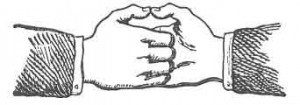
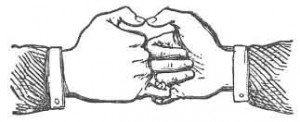

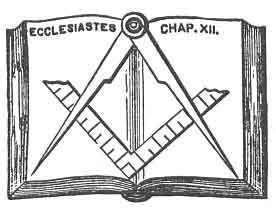
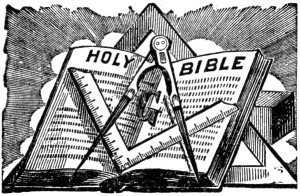
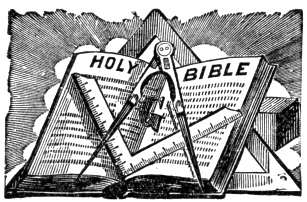
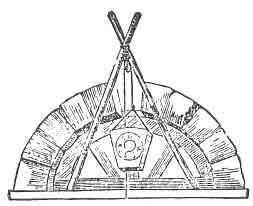
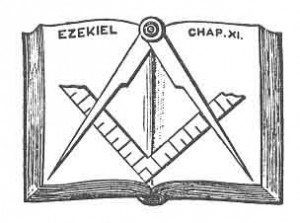
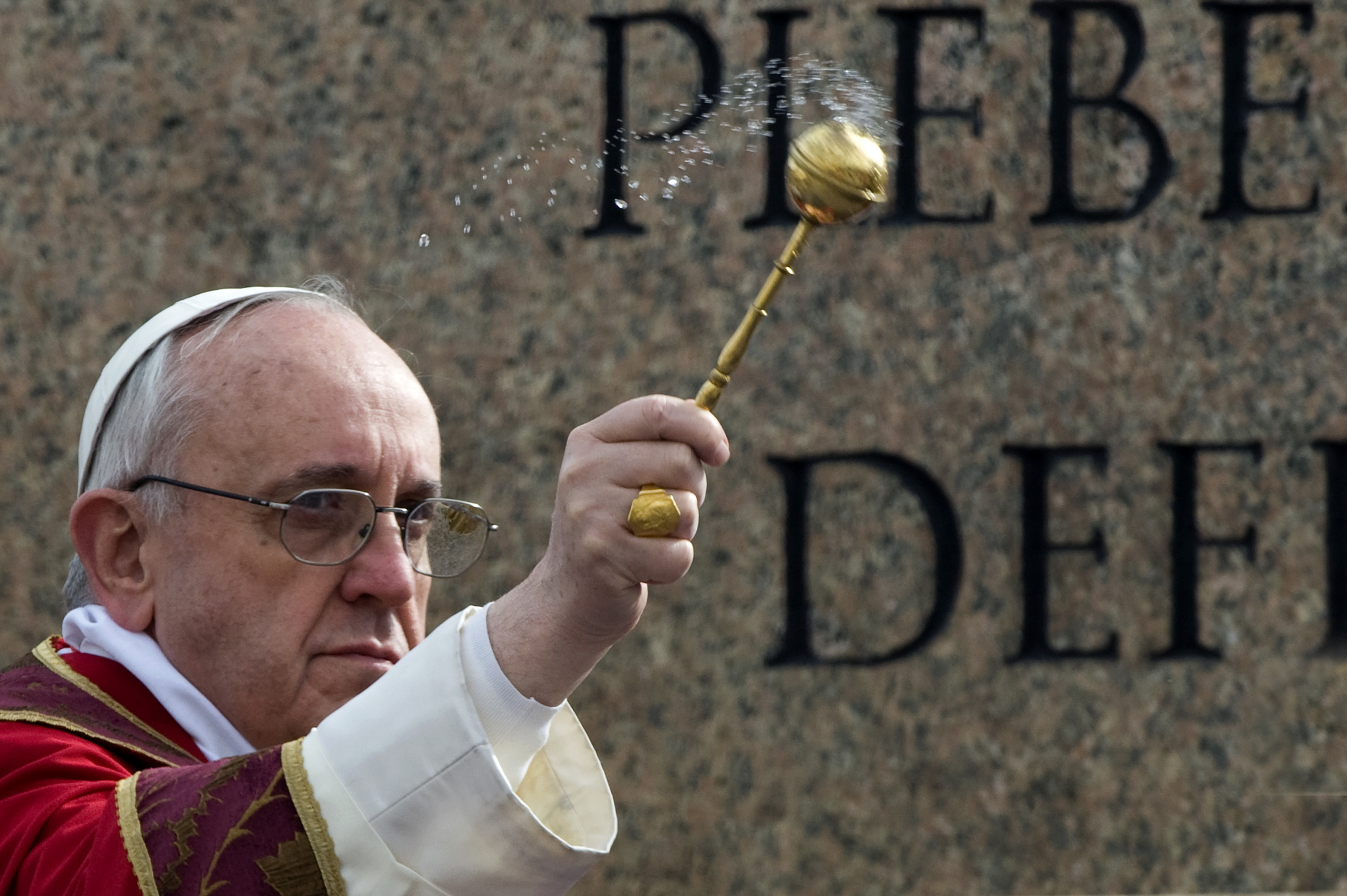
I enjoy reading and gaining knowledge to better thyself as well as our surroundings. It is crucial for us to continue the knowledge in order to fully give life freely.